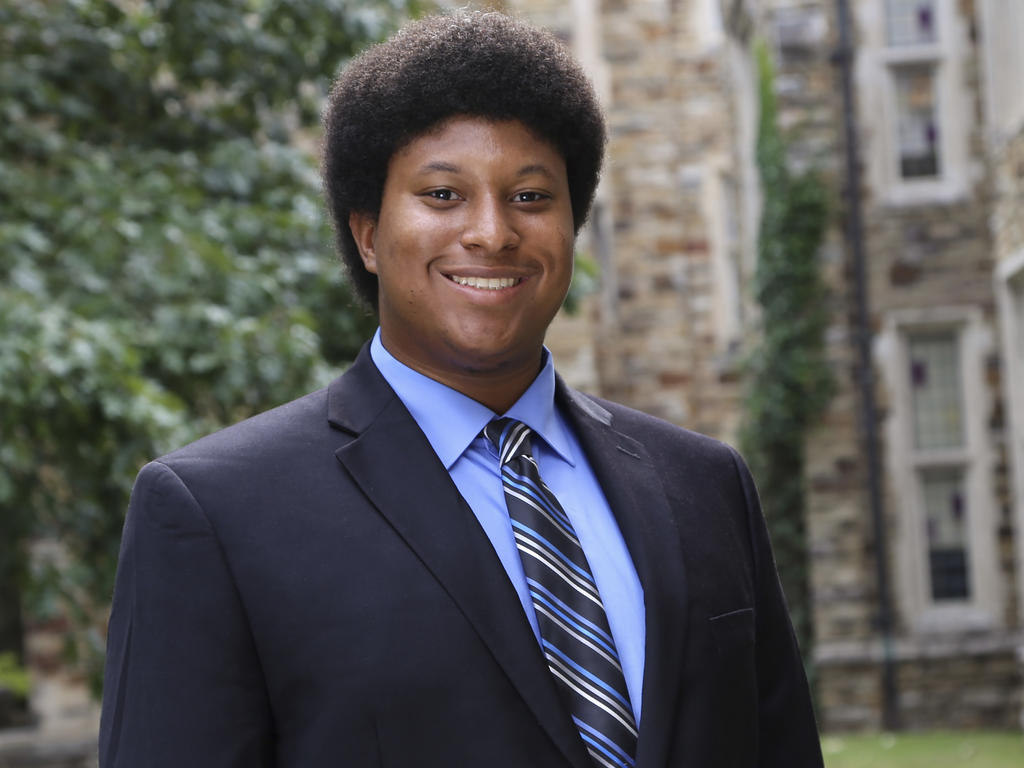Despite the Rhodes Mock Trial team not being able to compete in the American Mock Trial Association National Championship Tournament for the first time in 33 years due to COVID-19, recent graduate Brian Burgess says that membership on the nation’s most successful collegiate mock trial team for four years was about more than trophies.
A business major from Atlanta and one of the few students in the program without law school aspirations, Burgess gained expertise transferable across fields. “Improving skills such as public speaking, critical thinking, and communication through the program has served me well throughout interviews and internships and will be an asset in any career,” says Burgess. “I also met incredible people and formed genuine friendships throughout my time in the program, and I know we will stay in touch long after we have left Rhodes.”
Although the team did not get to go to nationals, it did win the Great American Mock Trial Invitational, held in Washington, D.C., last fall. “The highlight of this year turned out to be our team victory there, where we were up against some of the top programs in the country. I received an individual award for being a top witness, which was a first for me, and proof of my growth as a competitor year after year,” says Burgess.
“I would love to see more students of color and non-pre-law students take an active interest in Mock Trial and shine. During my junior year, there were only two black students in the over 40-person program, and this year there was a noticeable change. I hope that I was able to show non-white students that participating in Mock Trial is not only tremendously helpful in professional development, but it is a rewarding experience and a space where they can thrive.”
Graduating from Rhodes at such a pivotal time, Burgess says his mock trial experience and a liberal arts education have never been more valuable. “In the wake of the pandemic and recent protests, the most important lesson I have learned throughout my time at Rhodes is the importance of having malleable perceptions, not presuming our beliefs and perceptions of the world are the dominant ones.
“We must think critically, ask questions, and welcome ideas and experiences that are different from our own. I would encourage all students at Rhodes to learn how to challenge themselves and ask questions about where their beliefs come from, leaning into these hard conversations with compassion and understanding. They will grow in more ways than they can imagine.”
Currently, Burgess is interning at the accounting firm Frazier & Deeter in Atlanta, and in the fall will attend the University of California-Irvine to pursue a Master of Professional Accountancy. In the future, he plans to earn a Ph.D. and become an accounting professor.
By Grace Merriman ’21
